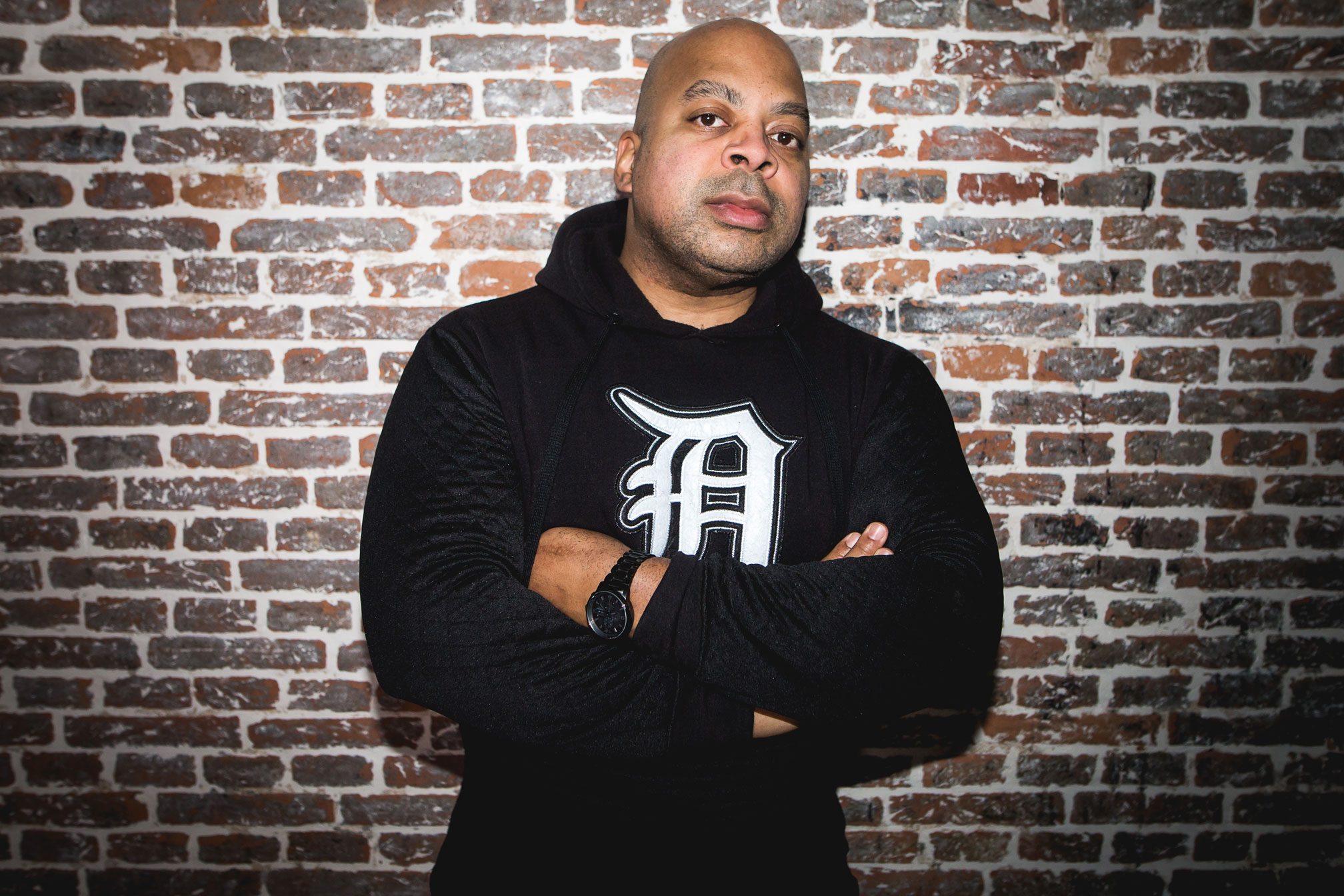 Features
Features
Pride of Detroit: DJ Bone is taking over Europe with his pulsating techno
We went to Amsterdam with the Detroit master
DJ Bone is underground in every sense of the word, but tonight we’re talking literally. He’s sitting in the green room at Amsterdam’s Shelter, an atmospheric concrete box of a techno club beneath the plaza outside A’DAM Toren. The latter is a landmark, a brightly-lit hotel and restaurant complex which blazes in the Saturday night skyline, acting as a counterpoint to the city’s grand old Central Station across the river. Though born and raised in Detroit, this is the city
Bone has called home for the last year.
A hidden highlight of this waterfront development of bars, restaurants and venues, Shelter is accessed by a hatch which flips open in the middle of the plaza an hour before the club opens; only the tough-looking but incredibly courteous gaggle of bearded and tattooed bouncers give away its purpose. Downstairs, Bone (real name Eric Dulan) is preparing for an eight-hour, back-to-back set which will take him through until morning and reunite him with an old friend and mentor from his home city, the man he calls ‘Uncle Juan’: Juan Atkins.
Taking that ‘underground’ metaphor even further, while Bone sits downstairs talking with Mixmag – and he’s a prolific, enthusiastic chatterbox, happy to wring out every last minute before the doors open – Juan is upstairs in his hotel suite in A’DAM Toren. One still operates below the surface, the other has long been recognised as one of the masters of his game. It was Juan who gave Bone his big break back in 1999, when he released the younger DJ’s second track ‘Riding The Thin Line’ on his Metroplex label (one of late Detroit vinyl-cutter Ron Murphy’s NSC-X2 limited run of pressings, in which two tracks were pressed with the grooves running alongside one another).
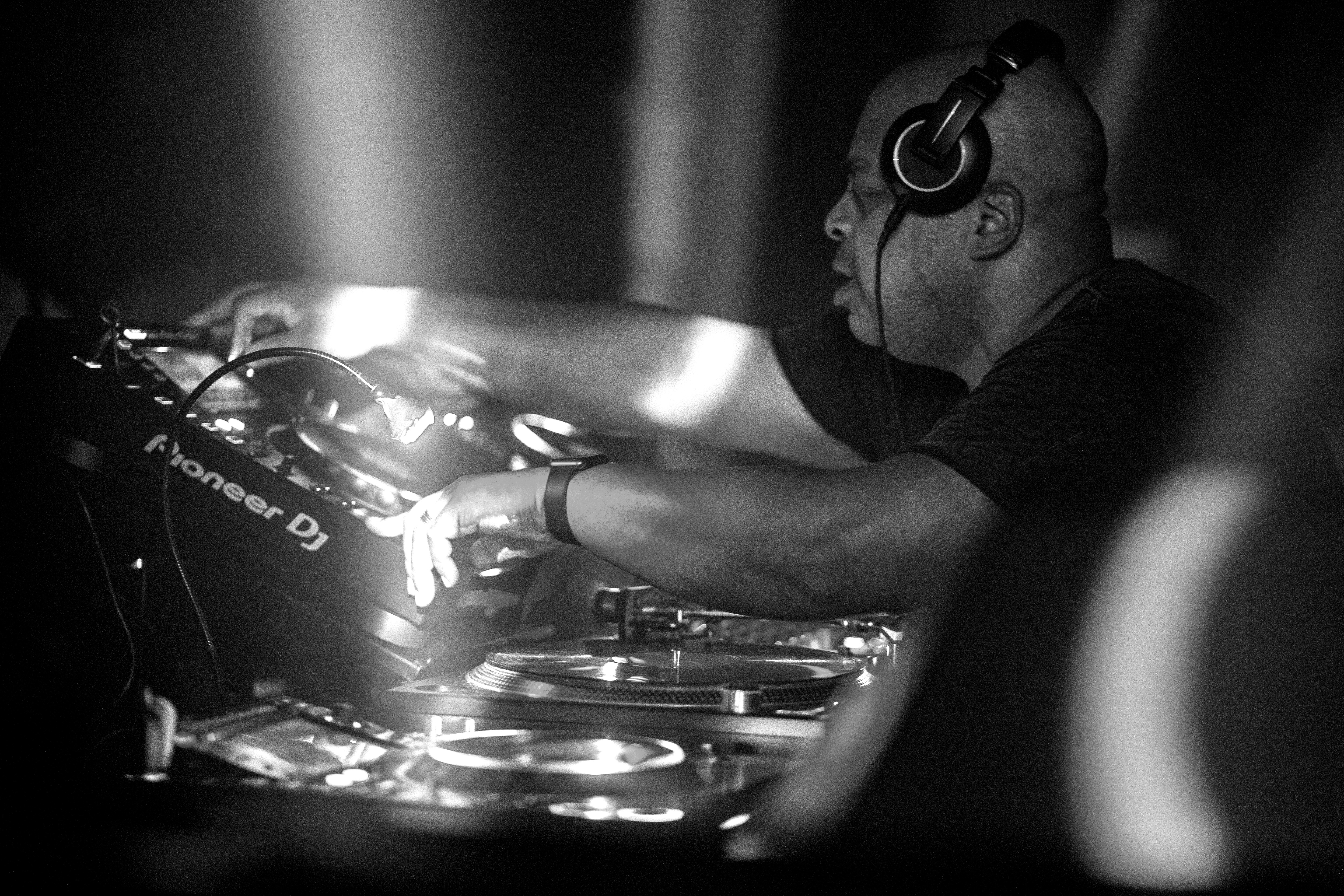
By the early 2000s Bone was releasing prolifically on his own Subject Detroit label and crossing the Atlantic to play in Europe, but it’s only in the last
year, between a change in personal circumstances and his move to Amsterdam with his wife Ahnne, that his hugely proficient sets of soulful, groove-
laden Detroit techno – he uses three CDJs and two Technics turntables – has begun to really achieve the recognition it deserves.
‘Overnight’ success, for Bone, has arrived in middle age, halfway around the world and more than twenty years after he started out. “I would never expect to be sitting here with you, or to be in the top twenty DJs of the year for Mixmag last year,” he says. “When I saw it I was shocked, and the reason is, the media don’t usually check guys like me, because there are so many people in your face – ‘Hey, hey, look at me!’ But I was never that guy to call you up or fax or email and say, ‘Hey, can you put me in your magazine? Can you look at my record? Can you help me out?’ And I’m not the guy who’s headlining a festival, waving my hands, pumping my fists. It’s just not me.”
That’s not to say he isn’t grateful for the recognition. Anything but. “It’s a bigger deal than people think, because it’s not just for me,” he says, “it’s for the underground. For me or DJ Stingray or Kelli Hand to get recognition like that, to be talked about in the same circles as Jeff (Mills) or Richie (Hawtin), or to be asked to go back-to-back with Dave Clarke [as he did at Shelter on New Year’s Eve last year] – that’s a feat. Dave has, like, 250,000 followers on Facebook and I have 25,000, but we’re on stage together. That’s huge, because it means I’m doing it my way and it’s working.”
‘My way’ means complete autonomy and independence, from self-releasing the majority of his music to the fact that Ahnne is his manager, as well as running her own accountancy business. “I don’t want to get to a point where I’m beholden to anybody,” he says. “I want to be able to do what I want, when I want, how I want, and that’s almost impossible for any artist.” Yet for him, it’s working.
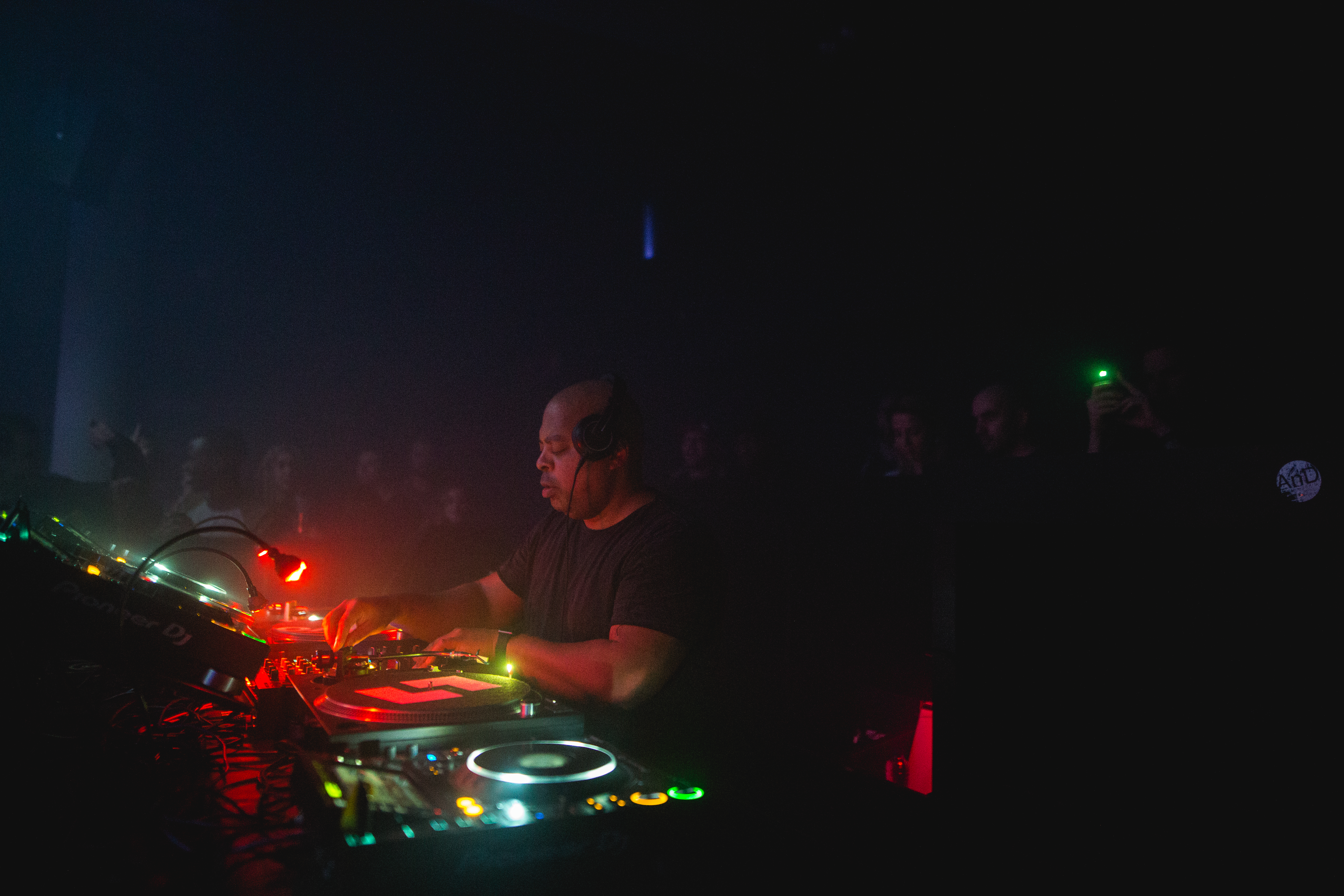
His first ever lessons on independence were instilled in him by his parents. “My dad worked in the plant for a lot of automakers over the course of nearly fifty years,” he says. “My mom was a stay-at-home mom for most of her life, then she ended up becoming a teacher and a principal. There was no shortage of lessons at home, most of them through music – my dad would sit me down to listen to ‘Angel Dust’ by Gil Scott-Heron and talk about drugs and how they’d mess me up. They’d always tell me I could do what I wanted, but I had to work hard, be strong, be smart, and never sit back and rest on my laurels.”
When he was a kid everyone thought he would end up playing basketball for the Detroit Pistons, and his DJ name is a throwback to those days. “I was a really good basketball player, even if I do say so myself, and for my height (five foot ten) I could jump to the moon. My friends would go to the park and just wait; I’d be checking somebody, he’d have a half foot on me, and he’d be talking shit. Then he would go to the basket and I’d block his shot with all my might, I would swat that ball so fuckin’ hard. My friends were all like, ‘Boom, dude, he bonus!’ And [that nickname] just got shortened down and stuck.”
His basketball coaches taught him his first big life lesson, when they took Bone and his fellow 13-year-olds to play a team of 18-year-olds every week. They would be beaten soundly, of course, but when they played kids their own age, they would come out on top. “My dad was the same way. When I was about seventeen he told me, ‘I know you think I was hard on you when you were young, but this is Detroit. I wanted to push you hard in order for you to fall back right where you needed to be.’ That’s how it’s always worked for me. Push yourself really hard, and even if it’s not one hundred per cent successful you’re still in a great place.”
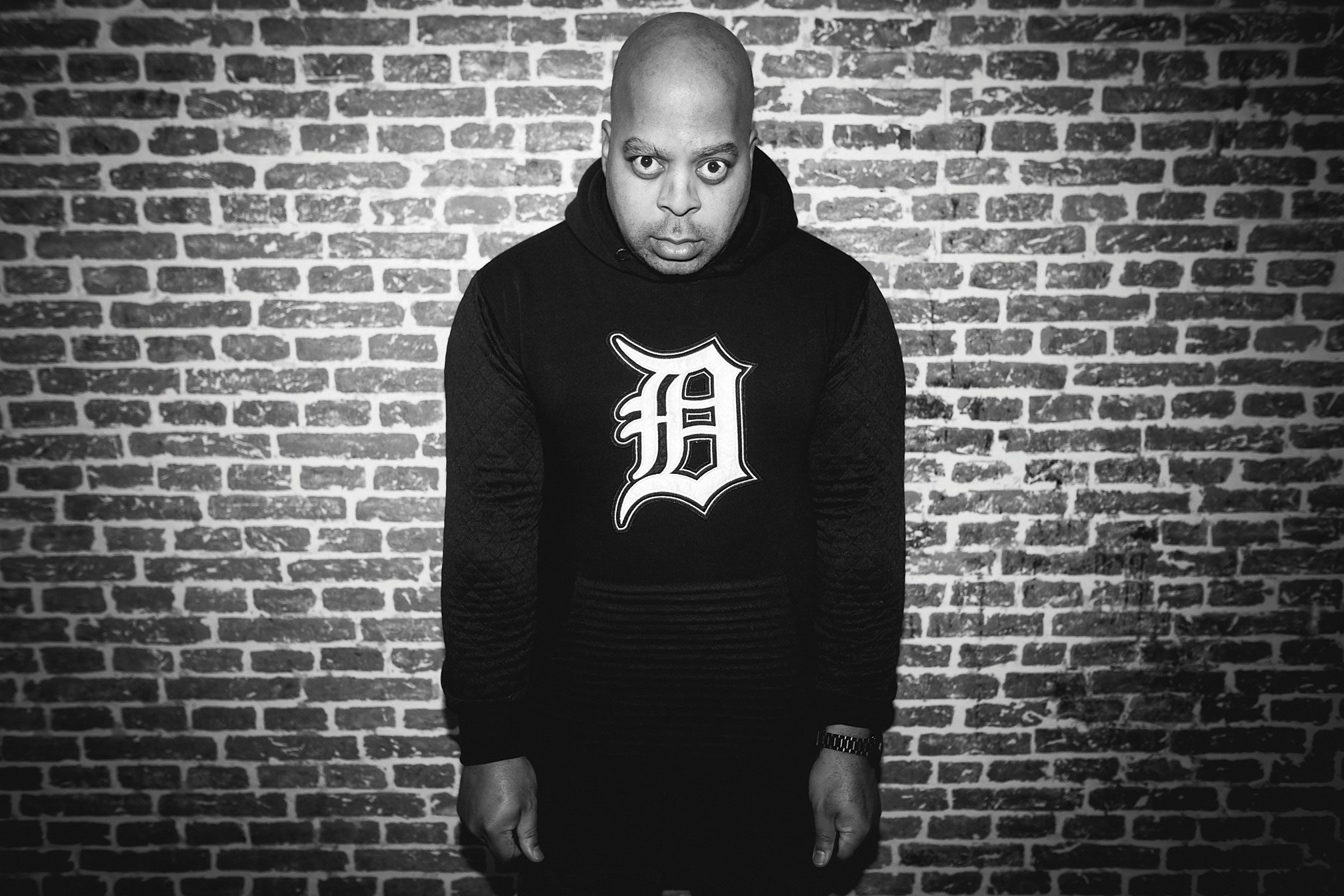
Music, he says, “just popped up”. In the late 1980s Bone was too young to go to nightclubs, but he heard The Electrifying Mojo and The Wizard (Jeff Mills) play techno on the radio, and he knew he had to experience this sound first-hand. “I was too young to get into The Music Institute, so we’d pay the bouncer to let us in the back. There was no alcohol, and back in the day in Detroit you just couldn’t have drugs in a club, it was a no-no. Underground Resistance used to take drug dealers out in the street and beat the shit out of them in front of everybody: ‘You bring drugs into our party, this is what’s gonna happen to you.’ But it wasn’t necessary to enjoy the music. The Music Institute had Alton Miller, D-Wynn and Derrick May, then on Friday night we would go to Majestic Beat and hear Blake Baxter. Those nights were just unforgettable.”
Bone is nostalgic for those days, and it’s not just misty-eyed. “Back then what was unfamiliar was exciting, and the people would let the DJ know if it was hot or not, you know?’ he says. “At the Apollo Theatre [in Harlem] you had to come with fire; you couldn’t just play any old track. Nowadays as long as you turn a knob on the effects or you stutter it, people will cheer. I appreciate the technology, but I have a soft spot for that raw adrenaline you get watching a human do it themselves, knowing it could all go horribly wrong at any moment, but the DJ is pushing it and pushing it and trying to create something magical for the crowd. There’s an honour and a respect in that; it’s not easy.”
That ethos keeps Bone’s DJing so compelling, and his productions are imbued with a warmth and a freshness, even as he embarks on the busiest phase of his career, in his mid-40s. He and Ahnne’s daughter turned 18 three years ago; the couple had split their time between homes in Detroit and Louisville, only rarely leaving the country in order to stay close to her and minimise disruption, but it seems she was happy to see them go and to gain a bit of independence. “Once she hit 18 I was like, ‘Right, fill my calendar’,” laughs Bone. “And they friggin’ filled it! So be careful what you wish for.”
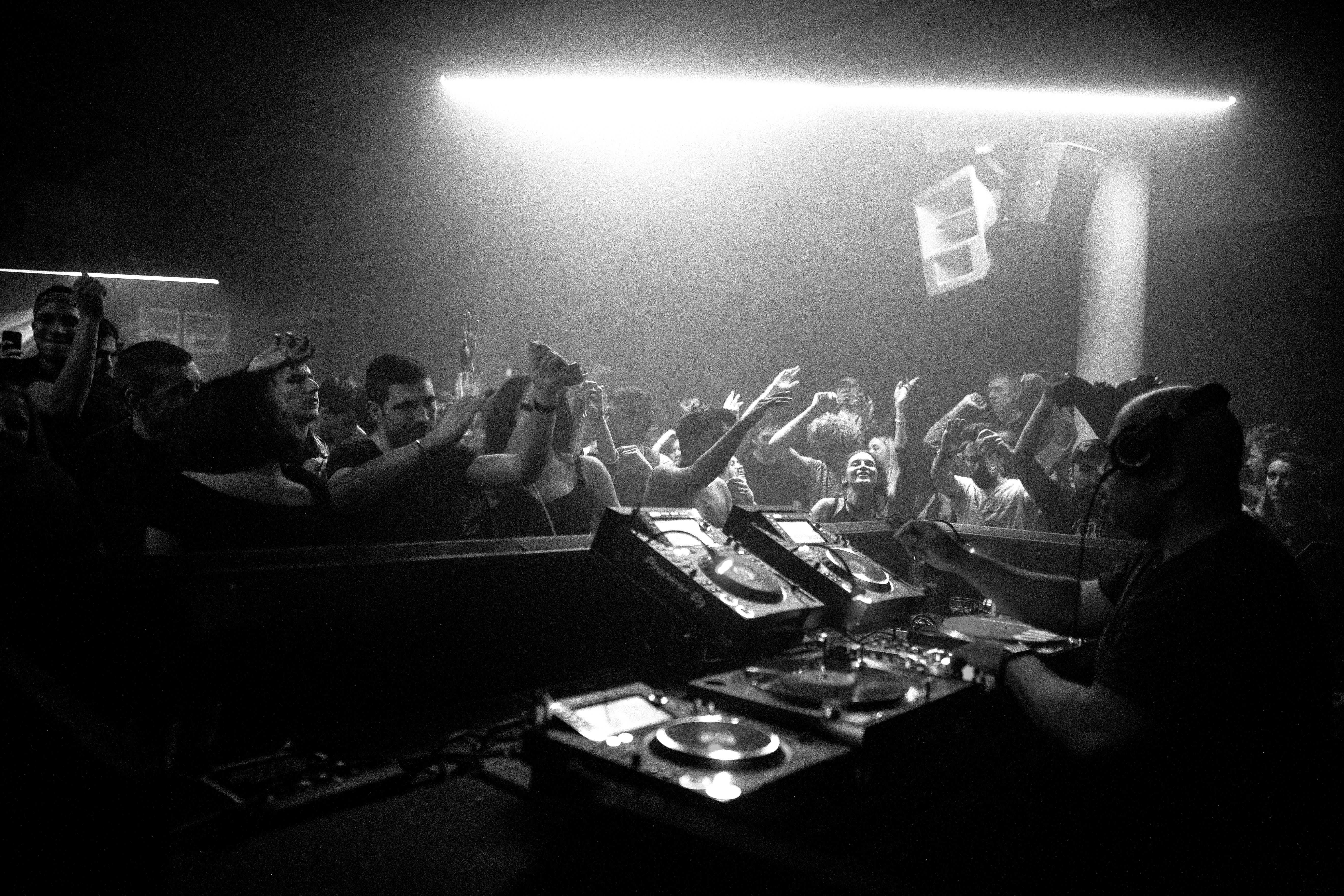
Not only has his DJing work expanded to fill every weekend, but his production has stepped up a gear as well. In 2017 he released ‘It’s Good to Be Differ-Ent’, his first album under his Differ-Ent alias, on Don’t Be Afraid, and this spring ‘A Piece of Beyond’ – his second album as DJ Bone after 2007’s ‘Out of Knowhere’ – arrives. “Differ-Ent is more strict,” he explains. “The best way I can describe it is, DJ Bone goes in the studio to express himself, exorcise his demons, to vent, but Differ-Ent will go in the studio and say, ‘I’ve got a set time, what can I make?’ That’s the most difficult for me: structure in the studio isn’t creative whatsoever, so I have to find a way of making that will fit the time I have.” The new DJ Bone material was made in a flurry of activity late last summer: he has 31 new tracks, and plans to release them as a trio of albums.
He and Ahnne are in Amsterdam through the Dutch-American Friendship Treaty, which gives residential rights in Holland to American citizens who meet certain criteria. It cuts down on travel time to the places where he’s most in demand: Europe has fallen for DJ Bone, and he currently holds five semi-regular residencies, one here at Shelter, the others at Oval Space in London, Concrete in Paris, Blitz in Munich and Griessmuhle in Berlin. Moving to Amsterdam, he says, was also about adopting a new way of life, although not one aimed at turning his back on America.
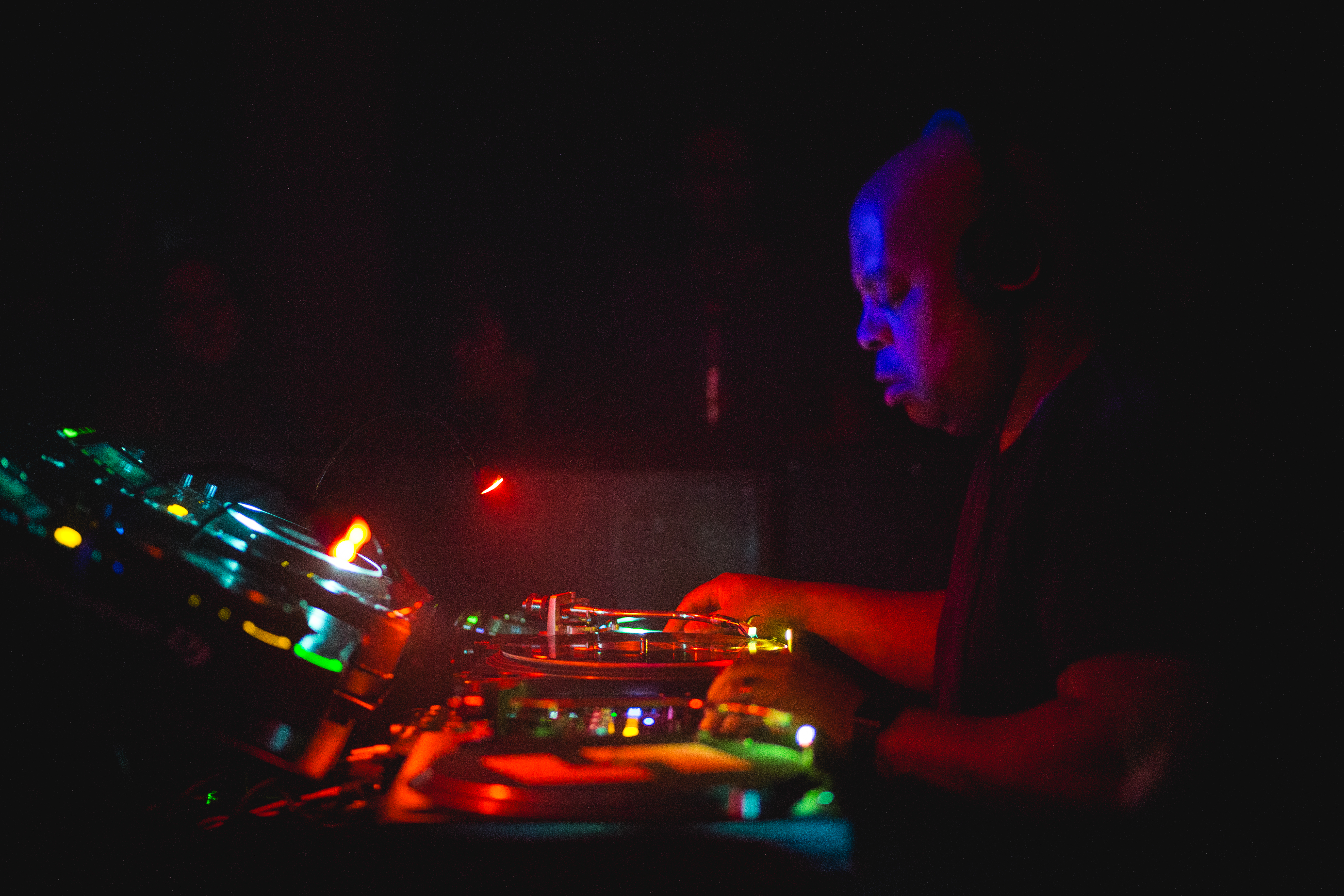
He talks frankly of being shot at when he was a teenager (“it wasn’t intentional, it was just some idiot. We were playing basketball at my friend’s house after school, and this man just hops the fence, right past us. Then these bullets, ftttp ftttp, whizzed past me… the police told us he robbed someone who didn’t take too kindly to it and started shooting”) and of the current state of his home country (“it’s pretty broken, but it’s never been perfect, it’s never been fixed”) – but he’s here only because he loves Amsterdam.
“It’s amazing to me,” he says. “What really makes me happy about life here is the way they take care of their citizens. It’s not a racial thing, or a gay or straight, or a male or female thing, it’s the human factor. It’s about saying, ‘How can we make life as easy and as good as possible for the citizens who live here?’ So public transportation, sanitation, renewable energy, healthcare – all these things are priorities, when in America they’re extras. It’s a shame, when America could be the pinnacle.”
He “doesn’t have to live in Detroit to be Detroit,” he says, and his big plans for the future can be carried out anywhere, like the live production for “art and motion and the senses” which he wants to establish at Shelter, or the next recorded project based around vinyl mixing. “It’s imperative I play a lot of underground parties,” he says. “That I can do Dekmantel and Neopop, but then I can still play a two- or three-hundred capacity in Leeds or Bristol. That’s important to keep the scene alive, because if it gets too big and commercial, all the big commercial people say ‘We’re not making enough money’ and they pull the plug and all the little guys are phased out. Then what?” At the moment, DJ Bone is comfortable where he is, with one foot in the underground and one in something bigger.
DJ Bone’s ‘A Piece Of Beyond’ is out now on Subject Detroit


